Lecanora cavicola Creveld
Bibl. Lichenol., 17: 273, 1981.
Synonyms:
Distribution: N - TAA (Nascimbene & al. 2021, 2022), Lomb (Nascimbene & al. 2021), Piem (TSB 34560).
Description: Thallus crustose-subsquamulose, episubstratic, 3-5 mm thick, forming 2-4(-5) cm wide, orbicular or irregular patches often delimited by a pale prothallus, the areoles constricted at base, convex-bullate, becoming subcerebriform, scattered to contiguous, 1-3 mm wide, pale grey-brown to brown, sorediate. Soredia finely granular, arising at the margins and lower surfaces of the areoles, pale yellowish green to brownish white (fading to white in the herbarium), arranged into initially concave, then convex, elongated to circular soralia which later become confluent and cover large parts of the upper surface, simulating capitate soralia. Upper pseudocortex overlain by an epinecral layer, pale brown, 20-30 μm thick, inspersed with small, pale yellow crystals partly soluble in K; medulla loose, white, the cells incrusted with coarse crystals insoluble in K. Apothecia rare, lecanorine to finally almost biatorine, broadly sessile, 1-1.5 mm across, with a greyish violet, brownish or bluish black, soon convex, usually somewhat pruinose disc and a thin, irregularly sinuous, at first slightly raised proper margin; a bluish black parathecial ring is often also present. Thalline exciple with a strongly gelatinized cortex, the medulla with few algae, loose, with anticlinally arranged, thick-walled hyphae; proper exciple colourless; epithecium olive green or dirty violet-brown, K+ green, N+ red, with greenish blue streaks penetrating into the hymenium; hymenium colourless, inspersed with oil droplets, 50-70 µm high; paraphyses strongly coherent, mostly simple, 1.5-2 μm thick at mid-level, the apical cells not or only slightly swollen; hypothecium colourless. Asci 8-spored, clavate, very thin-walled, with a K/I+ blue, tall tholus penetrated by a faintly amyloid apical cushion, the wall K/I-, surrounded by a blue outer layer, Lecanora-type. Ascospores 1-celled, hyaline, subglobose to ellipsoid, (6.5-)9-10(-13) x 5-7 µm. Pycnidia rare. Conidia thread-like, often curved, 15-20 µm long. Photobiont chlorococcoid. Spot tests: cortex K+ yellow, C-, KC+ red, P-; soralia C+ pink to red, KC+ red, P+ yellow. Chemistry: atranorin, alectorialic acid, thamnolic acid, unknown substances.Note: a species found on acid siliceous rocks near or above treeline; perhaps more widespread (but not common) in the Alps, where it reaches the nival belt. For further details see Poelt & Leuckert (1984).
Growth form: Crustose
Substrata: rocks
Photobiont: green algae other than Trentepohlia
Reproductive strategy: mainly asexual, by soredia, or soredia-like structures (e.g. blastidia)
In underhangs rarely wetted by rain
Commonnes-rarity: (info)
Alpine belt: very rare
Subalpine belt: very rare
Oromediterranean belt: absent
Montane belt: absent
Submediterranean belt: absent
Padanian area: absent
Humid submediterranean belt: absent
Humid mediterranean belt: absent
Dry mediterranean belt: absent

Predictive model
Herbarium samples


P.L. Nimis; Owner: Department of Life Sciences, University of Trieste
Herbarium: TSB (9143)
2002/01/02
thallus margin


P.L. Nimis; Owner: Department of Life Sciences, University of Trieste
Herbarium: TSB (9143)
2002/01/02

Modified from: https://gzu.jacq.org/GZU000291029
GZU000291029 - Collector Creveld,M. 76
Date 1976-07 Label Flora Norvegica - SE slope Vesl. Nystuguhö; Sör Tröndelag ; Alt. 1184 m
Habitat In a vegetation with Acarospora chlorophana and Lecanora subradiosa; on a sloping surface of a big boulder of phyllite, exp. NE, incl. 15° - ISOTYPE
Growth form: Crustose
Substrata: rocks
Photobiont: green algae other than Trentepohlia
Reproductive strategy: mainly asexual, by soredia, or soredia-like structures (e.g. blastidia)
In underhangs rarely wetted by rain
Commonnes-rarity: (info)
Alpine belt: very rare
Subalpine belt: very rare
Oromediterranean belt: absent
Montane belt: absent
Submediterranean belt: absent
Padanian area: absent
Humid submediterranean belt: absent
Humid mediterranean belt: absent
Dry mediterranean belt: absent

Predictive model
| Herbarium samples |


P.L. Nimis; Owner: Department of Life Sciences, University of Trieste
Herbarium: TSB (9143)
2002/01/02
thallus margin


P.L. Nimis; Owner: Department of Life Sciences, University of Trieste
Herbarium: TSB (9143)
2002/01/02

 INDEX FUNGORUM
INDEX FUNGORUM
 GBIF
GBIF
 DOLICHENS
DOLICHENS














